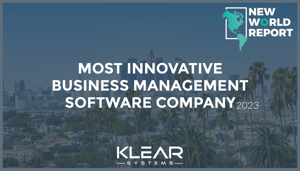
Enterprise Resource Planning (ERP) software housed in the cloud can offer incredible benefits to businesses. The top alluring features of cloud ERP are the affordable, subscription-based pricing and the unparalleled access to company data granted anywhere and anytime. In addition to these two, a cloud-based ERP also allows companies the option of having usable space that can grow with the business and freedom from managing a costly, in-house IT department.
As you consider a cloud-based ERP solution, there may be terms you may not be entirely familiar with. Klear Systems aims to bring clarity and guidance to your search for the cloud-based ERP software that best suits your unique business needs so please find our in-depth explanation of public cloud, internal private cloud, external private cloud and hybrid cloud below.
Public Cloud
The “public cloud” is what is usually being referred to when you hear about “the cloud”. This type of solution resides in a data center and typically utilizes a multi-tenant architecture, often referred to as Software-as-a-Service, or SaaS. With a SaaS model, both the infrastructure and applications are being shared by multiple users. This type of architecture allows companies to share the cost of both infrastructure and applications while maximizing the ability to scale solutions to their suit the business needs. Applications that support a public cloud architecture are typically web-based solutions, such as Acumatica.
The public cloud is a lot like Netflix. No matter where you are in the world, and no matter what device you’re on, you can always access your favorite films and shows. As a user, you create an account to store your information but you are also sharing content and functionality with other users.
Internal Private Cloud
An “internal private cloud” is located within the enterprise, usually behind a firewall. This means that the company is responsible for management of the infrastructure and applications. As a result, businesses that deploy this form of cloud architecture typically employ an IT staff to manage the environment and are responsible for the costs of controlling and protecting all their own data.
The private cloud is like a safe. Only people with the combination to the safe can get into it and if there is any problem with the safe, the safe owner will have to take care of it. Acumatica is one of the only ERPs that can be licensed as an internal private cloud solution.
External Private Cloud
Also referred to as “hosted,” this form of the private cloud involves contracting with an external data center to provide infrastructure and/or applications in a certain environment to your organization. In this example you may be sharing infrastructure resources with organizations but they are managed in a unique virtual or physical environment and accessible only to your organization.
Like the previous analogy, the hosted private cloud is also like a safe, and you can still only access it with the combination. However, if something goes wrong with said safe, other people fix it for you. Acumatica can be licensed as a hosted private cloud solution as well.
Hybrid Cloud
The “hybrid cloud” is when an organization adopts a combination of public and private cloud solutions. Many companies have elected to implement cloud computing in specific areas of their business where it makes the most sense. For example, certain business functions like CRM might require employees to have access to data from mobile devices or while traveling. These applications are particularly well-suited to be implemented as cloud solutions. Other business applications may be more well-suited to a private cloud environment and be internally maintained behind the firewall. Both Acumatica and SugarCRM offer solutions to this scenario.
As you now know, the cloud is a multi-faceted thing with many different options and applications for the modern business. Sage, Acumatica and SugarCRM offer opportunities for your organization to take advantage of the benefits of cloud solutions in any of the deployment options above.








